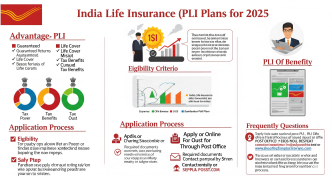Discover the Top 10 Reasons You Need Life Insurance Today. This guide reveals how Life Insurance provides financial security, covers debts, and builds a legacy for your loved ones.
Introduction
The conversation around Life Insurance is often met with hesitation. It forces us to confront our own mortality, a topic many prefer to avoid. However, this avoidance comes at a significant cost. Viewing Life Insurance not as a morbid necessity but as a profound act of responsibility and love is the first step toward true financial maturity.
It is the ultimate safety net, a promise that those you care about most will be protected and provided for, no matter what the future holds. The right Life Insurance policy is a cornerstone of any solid financial plan, offering peace of mind that is simply priceless. If you’ve been putting off this critical decision, here are the top ten compelling reasons why you need Life Insurance today.
1. To Replace Lost Income and Maintain Your Family’s Lifestyle

Your income is the engine that funds your family’s daily life—the mortgage, the groceries, the utilities, and the little extras that make life enjoyable. If that income were to suddenly disappear, your family could face immediate financial hardship.
- How Life Insurance Helps: A Life Insurance payout, often called a death benefit, replaces this lost income. It provides your beneficiaries with a tax-free lump sum that can be used to cover daily living expenses for years, ensuring your family can maintain their standard of living without being forced to make drastic lifestyle changes or downsize their home during an already emotionally difficult time.
2. To Pay Off Debts and Financial Obligations
Most people carry significant debts—a mortgage, car loans, credit card balances, or personal loans. These debts don’t simply vanish upon your death; they become the responsibility of your estate or, in some cases, your co-signers.
- How Life Insurance Helps: The proceeds from a Life Insurance policy can be used to pay off these outstanding debts in full. This prevents your loved ones from inheriting your financial burdens and allows them to start their new chapter debt-free, rather than being saddled with monthly payments they may not be able to afford.
3. To Cover Final Expenses and Funeral Costs

The practical costs associated with death are often unexpectedly high. The average funeral today can cost between $7,000 and $12,000. Adding in any final medical bills not covered by health insurance can create a significant financial strain for your family.
- How Life Insurance Helps: A Life Insurance policy ensures that these final expenses are covered immediately. The funds are typically available to beneficiaries within weeks, providing the necessary liquidity to pay for funeral services, burial or cremation, and outstanding medical bills without your family having to drain their savings or take on debt.
4. To Fund Your Children’s Education
As a parent, ensuring your children have access to quality education is likely a top priority. The cost of college continues to rise exponentially, and saving for it requires long-term, disciplined planning.
- How Life Insurance Helps: You can design your Life Insurance policy with your children’s future in mind. The death benefit can be earmarked specifically to cover tuition, room and board, and other educational expenses, guaranteeing that your dreams for their future can still be realized even if you are not there to contribute physically.
5. To Provide for a Stay-at-Home Parent
The financial value of a stay-at-home parent is immense and often underestimated. Their contributions—childcare, cooking, cleaning, transportation—would cost a small fortune to replace with paid services.
- How Life Insurance Helps: A Life Insurance policy on a stay-at-home parent provides the funds necessary to hire help for these critical tasks. This allows the surviving spouse to continue working without having to shoulder the entire burden of both earning a living and managing a household alone, providing crucial stability for the children.
H2: 6. To Secure a Business Partnership

If you own a business with a partner, your death could create significant operational and financial chaos. The business may be a key asset, and your family might need to be bought out.
- How Life Insurance Helps: In a buy-sell agreement funded by Life Insurance, each partner owns a policy on the other. If one partner dies, the death benefit provides the surviving partner(s) with the immediate cash to buy the deceased partner’s share of the business from their heirs at a pre-agreed price. This ensures a smooth transition, provides liquidity to the estate, and keeps the business running.
7. To Leave a Charitable Legacy
For those passionate about a particular cause, Life Insurance can be a powerful tool for philanthropy. It allows you to make a much larger contribution to a charity than you might be able to during your lifetime.
- How Life Insurance Helps: You can name a charitable organization as the beneficiary of your policy or a portion of the death benefit. This creates a lasting legacy that reflects your values and makes a transformative impact on a cause you believe in, turning your final act into one of incredible generosity.
8. To Lock in Insurability and Lower Premiums
The cost of Life Insurance is directly tied to two primary factors: your age and your health. Both are guaranteed to change, and rarely for the better in the eyes of an insurer.
- How Life Insurance Helps: Purchasing a policy when you are young and healthy locks in a low premium rate for the entire duration of the policy (e.g., 20 or 30 years). If you develop a health condition later in life, your rate remains the same. Procrastination is the enemy of affordability when it comes to Life Insurance.
9. To Supplement Retirement Savings with Cash Value
Permanent Life Insurance policies, such as whole life or universal life, include a cash value component that grows over time on a tax-deferred basis.
- How Life Insurance Helps: This cash value acts as a living benefit. You can borrow against it (typically at a low interest rate) or withdraw funds to help pay for expenses like a child’s wedding, a down payment on a home, or to supplement your retirement income. It adds a layer of financial flexibility to your long-term plan.
10. To Achieve Ultimate Peace of Mind

Above all else, the greatest benefit of Life Insurance is intangible but invaluable: peace of mind. It is the profound comfort of knowing you have done everything in your power to protect your family from financial disaster.
- How Life Insurance Helps: It alleviates the anxiety of the “what ifs.” With a policy in place, you can sleep better at night, live your life more fully, and focus on creating memories with your loved ones, secure in the knowledge that you have a solid plan to protect them no matter what tomorrow brings.
Frequently Asked Questions (FAQ)
1. How much Life Insurance do I actually need?
A common rule of thumb is 10-15 times your annual income. However, a more accurate calculation should consider your debts, future education costs for children, final expenses, and income replacement needs. Online calculators or a consultation with a financial planner can help determine your specific number.
2. What’s the difference between Term and Permanent Life Insurance?
Term Life Insurance provides coverage for a specific period (e.g., 20 or 30 years) and is generally more affordable. It’s pure protection. Permanent Life Insurance (Whole, Universal) provides lifelong coverage and includes a cash value savings component, making it more expensive but also an investment vehicle.
3. Is Life Insurance payout taxable?
Generally, no. The death benefit paid to your beneficiaries is typically income-tax-free. However, if your estate is large enough to be subject to estate taxes, the proceeds could be included in that calculation. An estate planning attorney can help structure ownership to avoid this.
4. Can I get Life Insurance if I have a pre-existing health condition?
Yes, it is often still possible. While conditions like diabetes or heart disease may lead to higher premiums, you are not automatically disqualified. The type and severity of the condition, along with its management, will determine your eligibility and rates.
5. How do I choose a beneficiary?
A beneficiary is the person or entity who receives the death benefit. You can name primary beneficiaries (first in line) and contingent beneficiaries (who receive the proceeds if the primary beneficiary predeceases you). It can be a spouse, children, a trust, or a charity. It’s crucial to be specific and update your beneficiaries after major life events like marriage, divorce, or the birth of a child.
Conclusion: The Time to Act is Now
The reasons for securing Life Insurance are compelling and multifaceted. It is not a product you buy for yourself; it is a gift of security, stability, and love that you provide for your family. It is the foundation upon which their financial future is built, ensuring that a tragedy does not also become a financial catastrophe. The best time to get Life Insurance was yesterday.
The second-best time is today. Every day you wait increases the cost and risks your insurability. Take the first step today—consult with a financial advisor, get a quote, and cross “financial security for my family” off your worry list. It is one of the most responsible and caring decisions you will ever make.
Know more related:
The Ultimate Beginner’s Guide to Business Insurance







